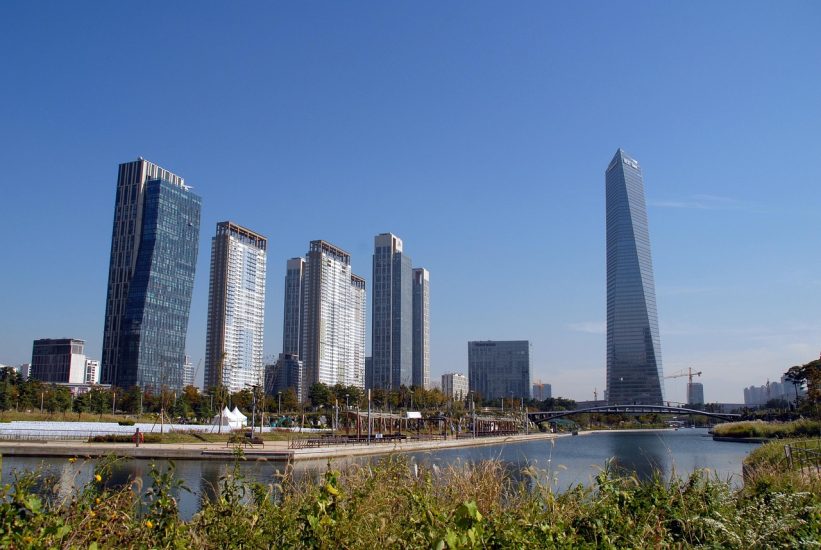The Republic of Korea’s Ministry of Land, Infrastructure and Transport (MOLIT) has designated the third round of special zones to promote the commercialisation of drone industry service models and expand the foundation for technology verification. This expands the number of such zones to 67 zones across 32 local governments nationwide.
Subject to local government safety management, the zones exempt or simplify six drone flight regulations, including flight approval and safety certification.
MOLIT reports positive results from the first two rounds of special zone designation. For example, in Taean, swarm drone light show production technology has been advanced using a special zone, and drone delivery demonstrations have been conducted in Incheon, Pocheon and Seosan. Under the programme, drones have been used for monitoring the safety of local festivals in Jeju and Ulsan, and for monitoring around national heritage sites in Gyeongju. In Jeonju, flood-prone areas have been monitored, and in Gwangju, hydrogen-fueled drones have been developed due to the use of the special zones.
The third zone designation round focuses on promoting the demonstration and commercialisation of drone technology in diverse spaces, including urban areas, rural areas, oceans and forests, and on realising drone services that the public can experience without regulatory barriers. Several projects are expected to be undertaken during this third round, including:
- Dangjin City plans to conduct a pilot programme using drones for detection and removal to minimise damage to farms and prevent accidents caused by increased wasp populations.
- Gongju City plans to commercialise a drone-based delivery service for defibrillators and medical supplies in the event of a disaster or emergency.
- Gangjin County will conduct a pilot project to monitor real-time water quality changes and algae blooms in rivers and Gangjin Bay with a view to increasing the accuracy and speed of environmental data collection.
- Nonsan City plans to implement a drone-based monitoring project to improve the water quality of Tapjeong Lake, monitoring illegal fishing and pollutants.
- Yeongju City plans to conduct specialised smart agriculture demonstrations, including pest control and crop growth monitoring using long-range drones for agricultural use, and a demonstration project for a forest fire response system using large drones for early firefighting. Yangju City plans to conduct demonstrations for administrative and park delivery services.
- Chuncheon City will conduct demonstrations for drone leisure sports, including the development of a racing course.

Positive ripple effects are expected across the industry, including the expansion of regional drone-based services. Joo Jong-wan, Director of the Aviation Policy Office at the Ministry of Land, Infrastructure and Transport, said the government will continue to “flexibly improve rigid regulations that hinder demonstrations based on regulations and circumstances, and expand the application of regulatory exceptions based on on-site demand”.
MOLIT and the Korea Aviation Safety Technology Institute will manage and supervise the special drone zones, through regular on-site inspections and performance evaluations to ensure safety and policy effectiveness.
For more information
Ministry of Land, Infrastructure and Transport – Republic of Korea
Image: Drone delivery services have been tested in Incheon as part of the first two rounds of the zone designation project. (Pixabay)




